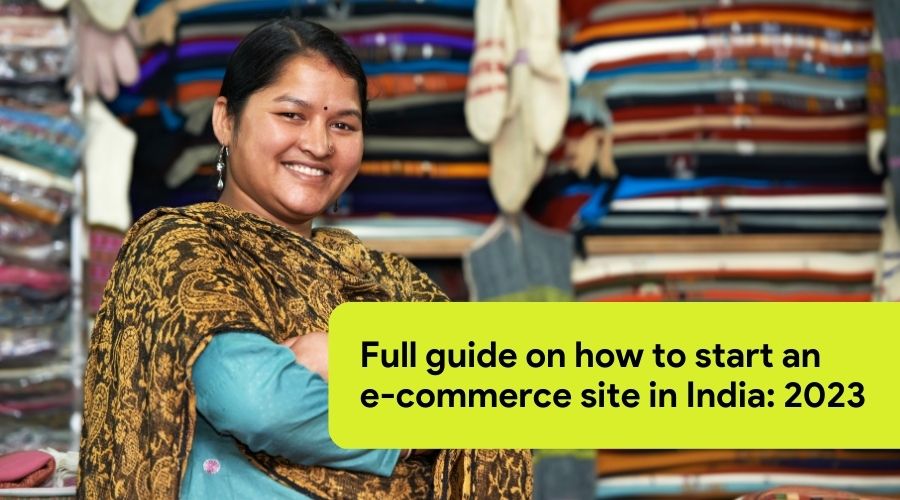
Full guide on how to start an e-commerce site in India: 2023
Starting an ecommerce website in India involves several steps, including planning, registering your business, setting up your website, and marketing your products or services. Here’s a detailed guide on how to get started:
Plan your business: Before you start setting up your ecommerce website, it’s important to have a clear understanding of your business model, target market, and products or services that you plan to sell. This will help you make informed decisions throughout the process.
Register your business: In India, you can register your business as a Sole Proprietorship, Partnership Firm, Limited Liability Partnership (LLP) or Private Limited Company. Each type of business registration has its own set of requirements and benefits. It’s best to consult with a professional to determine which type of registration is best for your business. How ever if you are a small business that doesn’t come under GST or Registration limits you can just start without these registrations also, and when your business is about to hit these limits you can start the procedure for registration.
Obtain necessary licenses and permits: Depending on the type of products or services you plan to sell, you may need to obtain certain licenses and permits. For example, if you’re selling food products, you’ll need to register with the Food Safety and Standards Authority of India.
Set up your website: Once your business is registered and you have obtained any necessary licenses and permits, you can start setting up your ecommerce website. You will need to choose a domain name, select a hosting service, and design and develop your website. You can either use an ecommerce platform like Shopify, Magento, or Bigcommerce, or hire ecommerce website development company in kerala to build a custom website.
Market your products or services: After your website is up and running, it’s important to start marketing your products or services to attract customers. This can be done through social media marketing, Google AdWords, influencer marketing, email marketing, and other digital marketing techniques.
Handling Logistics: E-Commerce business also require to handle Logistics, So you can either set up your own logistics or tie-up with some of the logistics providers who already in the market. you can also consider linking your store to shipping managing services like Shiprocket or tracking management services like Trackship to give your customers and store management team a faster and efficient order tracking and delivery system
Payment Gateway and Fraud prevention: Payment gateway is an essential part of the E-Commerce business, you can use payment gateway like PayPal, Paytm, Razorpay, and many more to accept payments. Payment Gateways like Razorpay now has direct integration with UPI so your customers in India will be able checkout fast and hassle free. you can also consider adding additional payment gateways which provides pay later or pay in three systems like Simpl to increase your store conversion rates.
Taxation: E-Commerce business also requires compliance with the Indian tax laws, so it is important to be aware of the GST and other taxes that apply to your business.
Keep Improving and Updating : Ecommerce business also requires to keep updating and Improving to stay ahead of competition. you can study and analyze the marketing techniques and new trends that your online competitors and market leaders and following to get insights for updates to your ecommerce system. for this you can obtain help from major Ecommerce website developers. Keeping the ecommerce website SEO optimized is also important, so your site will be visible when people are searching for the product in search engines and your website shows up
Please note that this list is not exhaustive and there may be additional steps required depending on your specific business and the products or services you plan to sell.

